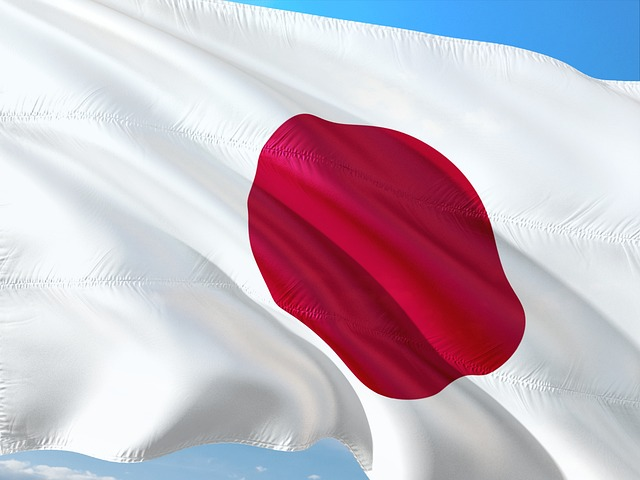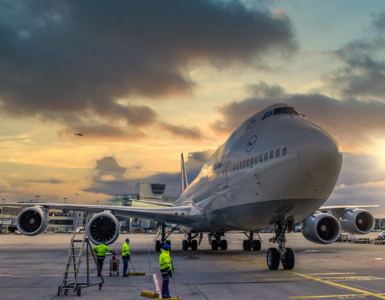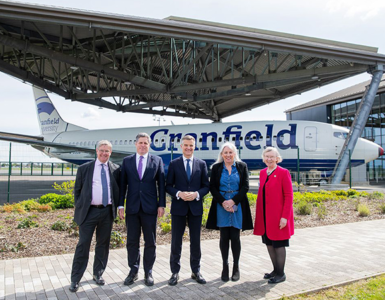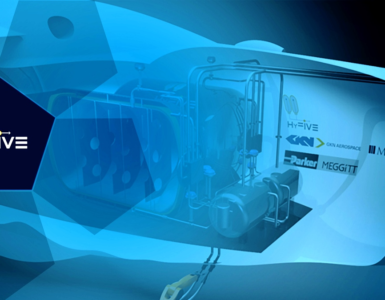Japan Plans $26 Billion New Hydrogen Powered Passenger Jet Program.
Airbus and BoeingBA +0.5% could face fresh competition from Japan. The Japanese Ministry of Economy, Trade and Industry announced it plans to invest 4 trillion yen ($26.46 billion) in a public-private partnership to develop a next-generation hydrogen-powered passenger jet.
As reported by AFP, the ministry said in a statement:
It is important for us to build next-generation aircraft based on technologies where Japan is competitive while also contributing to the decarbonization of air transport.
Japan expects the new sustainable aircraft development to be completed after 2035.
🔥 What about we co-host a webinar? Let's educate, captivate, and convert the hydrogen economy!
Hydrogen Central is the global go-to online magazine for the hydrogen economy, we can help you host impactful webinars that become a global reference on your topic and are an evergreen source of leads. Click here to request more details
Japan’s last commercial aircraft program was the YS-11 turboprop in 1962. It was developed to replace the discontinued Douglas DC-3 and performed well domestically. However, it faced challenges after a revaluation of the yen made it hard to sell abroad. YS-11 production ended in 1973, but the aircraft enjoyed a long service life after that. Its last commercial flight was in 2006.
Japan’s most recent aircraft development program, the Mitsubishi SpaceJet, failed to take off after suffering complications in development and the strains of the COVID-19 pandemic. Mitsubishi Heavy Industries announced it would terminate the much-anticipated program last year. However, Japan’s ministry believes the abandoned SpaceJet made the case for an aircraft program where risk is shared between the private and public sectors and relying on international cooperation.
Aiming For Hydrogen Powered Flight
Japan’s plans are ambitious. The new program would aim to develop a new-technology aircraft: hydrogen-powered planes. This aligns with Japan’s plans to be carbon neutral by 2050.
“In the new business fields of carbon-neutral technologies, including hydrogen, we aim to take a leading position,” Kazuchika Iwata, state minister for economy, trade, and industry said.
Airbus has also announced plans to develop hydrogen-powered aircraft by 2035 and to fly an A380 hydrogen testbed by 2026. Boeing has been more reserved, predicting that hydrogen-powered flights might not launch until 2050.
Hydrogen fuel is an attractive option as the airline industry aims to reduce carbon emissions by 2050. Hydrogen does not any emit carbon dioxide when burned and could allow airlines to offer zero-carbon flights.
Hydrogen is not the only sustainable option on the table for the program. The ministry has said it will conduct research into the most viable fuel option. An economy ministry official told AFP, “Nothing concrete has been decided yet, but possibilities include hybrid electrics, hydrogen combustion, hydrogen FC.” Hydrogen FC refers to hydrogen fuel cells.
Japan’s announcement follows shortly after China’s Commercial Aircraft Corporation of China took its C919 passenger jet and ARJ21 regional jet on a six-country tour of Southeast Asia which began with the Singapore Air Show last month.
COMAC clearly sees an opportunity to attract new customers as Boeing and Airbus face production challenges. It is still unclear whether Japan can develop a competitive plane with new fuel technology in time to address airline needs.
However, as state minister Iwata put it:
For the Japanese aircraft industry to achieve sustainable growth, we cannot stay satisfied with our position as a parts supplier.
READ the latest news shaping the hydrogen market at Hydrogen Central
Japan Plans $26 Billion New Hydrogen Powered Passenger Jet Program. source








